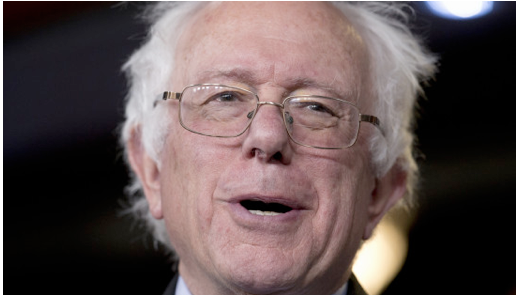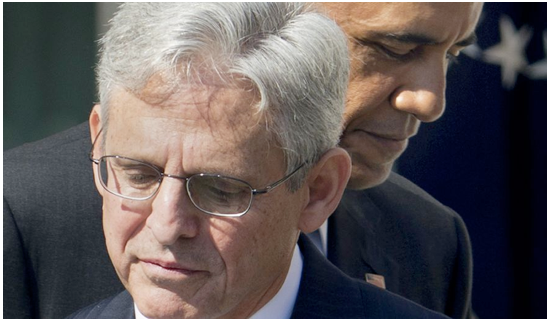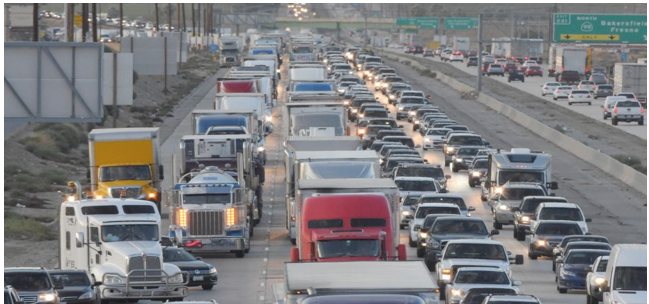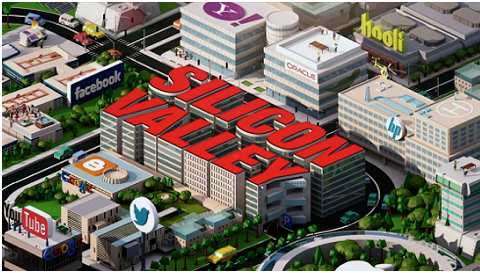AIR SAFETY--A dramatic increase in the use of recreational and hobby drones in California during 2015 led to numerous instances of drones interfering with fixed-wing firefighting aircraft, as well as police and air ambulance helicopters.
The League and the California Police Chiefs Association joined forces in 2015 to co-sponsor a public safety measure, Senate Bill 168 (Gaines-Jackson), that sought to address the hazard posed by unmanned aircraft systems, or drones, operating in flight-restricted airspace during an emergency.
The bill would have provided first-responder aircraft operators with immunity in the event they damaged or destroyed a drone that was interfering with their emergency operations. Although Governor Brown vetoed the bill, citing its creation of a new misdemeanor offense that he believed to be unnecessary, the issue is far from dead.
Reports continue of drone interference with first responders and commercial airliners. A California Highway Patrol helicopter avoided a collision with a drone on Dec. 5, 2015, over Highway 4 in Martinez only by taking evasive action. Law enforcement personnel identified the drone operator and referred his case to federal authorities. Had a collision occurred with the helicopter crashing on the highway, there could have been significant loss of life and extensive injuries. This incident offers a prime example of why tighter regulations on the use of recreational drones are urgently needed.
New Regulations Require Registration for Recreational Drones
On Dec. 14, 2015, the Federal Aviation Administration (FAA) announced a new federal regulation requiring registration of all model aircraft, including recreational drones. The web-based registration process is reportedly user friendly. Under the new federal rule, anyone who operated a drone — also known as an unmanned aircraft system (UAS) — before Dec. 21, 2015, is required to register by Feb. 19, 2016, at www.faa.gov/uas/registration. Owners of any drone or UAS purchased after Dec. 21, 2015, must register before their first outdoor flight. Owners and operators must pay a registration fee of $5.00. In addition, drones will have to display a unique identifier, which is a registration number issued by the FAA.
These new regulations, while helpful, may not go far enough to adequately address the hazards and potential misuse of drones. For example, registration is largely voluntary, and for drones purchased after Dec. 21, 2015, registration is not required at the time of purchase or point of sale. Though registration is now required prior to operating a drone, it is unclear how such a requirement will be enforced without a point-of-sale registration requirement or a requirement for online registration with the FAA before an online drone sale can be completed. This raises doubts about the effectiveness of the FAA’s response, given the widespread abuse of this technology over the past two years.
Enforcement and Penalties
The Unmanned Aircraft System Registration Task Force, which made a series of recommendations that led to the recent FAA regulations, considered the difficulties posed by enforcement and the limitations of the FAA and local law enforcement agencies. The FAA’s primary enforcement mechanism will be outreach and education, which will likely be web-based (see “What’s Required Under Federal Law” below). The FAA may also employ administrative or legal enforcement action to ensure compliance with the new requirements. Existing federal law already provides civil penalties of up to $27,500 for failure to register a drone and corresponding criminal penalties including fines of up to $250,000 under 18 United States Code (U.S.C.) Section 3571 and/or imprisonment up to three years under 49 U.S.C. Section 46306. However, under the new regulations there is no systematic mechanism to alert authorities about who has registered or to identify those who have not.
Why Tighter Regulations Are Still Urgently Needed
The Consumer Technology Association, a trade group, estimated that 400,000 drones would be sold in the United States during the 2015 holiday season. Given the many safety hazards drones pose and the current lack of comprehensive regulations and enforcement provisions to make such regulations meaningful, a number of states — including California — may take the initiative and pursue enforcement or other legislation, notwithstanding potential conflicts with federal law.
Background and Challenges
Manufacturers have often resisted legislation that would impose requirements such as placing unique identifiers on individual drones, building in “kill switches” that could incapacitate a drone instantly, or including transponders, which are devices that emit a radio signal used to track location. This resistance has frustrated authorities and limited their ability to hold wayward drone operators accountable. Even if state or federal legislative efforts are mounted to impose stiffer fines or even jail time for drone-related accidents, such efforts may not be meaningful if there is no feasible means of readily identifying drones or linking them with specific operators.
Past federal regulations have contributed to the current problem. Congress in 2012 declined to regulate recreational drones and ruled that the FAA could not require members of the public to register their drones, obtain training or fly drones with identifying features. As a result, the steadily growing use of recreational drones has risen to the level of endangering first-responder aircraft as well as commercial jetliners.
Federal law currently may pre-empt many state regulations in this area, and the FAA considers its body of regulations over UASs as “occupying the field” — that is to say, pre-empting state and local law. Federal regulations specifically addressing recreational drones seem to fall short given the extensive illegal activity. A few general guidelines that pre-date drones were initially issued to regulate model airplanes — these guidelines restrict drones’ maximum flight altitude to 400 feet and direct operators to avoid contact with other aircraft, keep the drone in sight and stay at least 5 miles away from commercial airports. Otherwise, federal regulations have not addressed recreational drones at all until very recently.
When it enacted the FAA Reauthorization bill in 2012, Congress decided that recreational drones would be outside the scope of most FAA regulations, which focus primarily on commercially operated unmanned aircraft systems. Another federal law (also enacted prior to the advent of drones) applies to model aircraft generally but also to drones and requires pilot certification if the model aircraft/drone weighs more than 55 pounds.
But the new regulations issued in December 2015 may not adequately address the many instances of less than responsible use of recreational drones. These regulations, which depend on voluntary compliance, may not be a sufficient response to the problem of those intent upon ignoring the law. To complicate matters, most drone flight education programs are privately sponsored, and manufacturers are not required to include in drone packaging the latest FAA regulations governing the use of recreational drones.
Multiple Incidents Highlight a Danger to Public Safety
Drones interfered with aircraft attempting to battle wildfires on at least 13 separate occasions in 2015, compared with only four such incidents during 2014, according to the U.S. Forest Service. In many instances, firefighting aircraft had to be grounded for safety reasons due to drones operating in flight-restricted airspace. The result of grounding these aircraft was never more dramatic than in July 2015 at the Cajon Pass in San Bernardino County where a 3,500-acre wildfire destroyed four homes and 20 vehicles as the blaze jumped Interstate 15. A month later, an air ambulance narrowly avoided a collision with a drone in the skies over Fresno.
Some have voiced doubts about whether what are essentially hobby drones pose much of a threat and speculate that authorities may have overreacted in deciding to ground their aircraft for safety reasons. But in an Aug. 11, 2015, CBS news broadcast, California Department of Forestry and Fire Protection helicopter pilot Jason Thrasher underscored the danger drones pose to firefighting aircraft, when he made it clear that a collision with even a relatively small drone can bring an aircraft down. “If a drone … were to go into a tail rotor or a main rotor system, it could have catastrophic consequences,” Thrasher said.
A Growing Threat to Commercial Aviation
The federal government has tightened its grip on recreational drone regulation since 2012, but arguably not quickly enough. In June 2014, the FAA banned the use of hobby drones within 5 miles of airports, unless the drone operator has secured permission to fly in that airspace from the airport and its control tower. Despite this regulation, violations near airports continue to occur with increasing frequency.
According to a nationwide study (Drone Sightings and Close Encounters: An Analysis, December 2015) conducted by the Center for the Study of the Drone at Bard College, over 90 percent of incidents involving drones and commercial aircraft from Dec. 17, 2013, to Sept. 12, 2015, occurred above 400 feet, the maximum altitude at which drones are allowed to fly under FAA regulations. The study reported:
- 51 incidents in which a drone was sighted 50 feet or less from an airliner; and
- 28 incidents in which pilots had to take evasive maneuvers to avoid a collision.
Often the drones were large enough to cause significant — possibly catastrophic — damage in the event of a collision; among the 340 drones identified in the study, 246 were multirotor and 76 were fixed-wing.
Bard’s study also included reported incidents at Los Angeles International Airport over a one-year period beginning Dec. 8, 2014. The study found 17 incidents of drone sightings in proximity to the airport. Eleven of the incidents, or 64 percent, were within the federally prohibited 5-mile radius. Ten of them were above 400 feet, ranging from altitudes of 500 to 4,000 feet.
In June 2015, a Southwest Airlines pilot reported sighting a drone at between 2,000 and 3,000 feet just prior to landing at Oakland International Airport. Such incidents are increasingly common in other parts of the country. The Denver Post reported on Sept. 20, 2015, that since June 2015, unauthorized drones have been spotted near Denver International Airport seven times, flying within 500 feet of approaching aircraft at altitudes as high as 3,600 feet, well above the maximum altitude of 400 feet for drones.
What’s Required Under Federal Law
In an effort to help the public understand what is required of not only recreational drone operators, but also commercial and public agency users of unmanned aircraft systems, the FAA has launched a website containing information on the federal requirements, including the many safety guidelines listed below, at http://knowbeforeyoufly.org.
Recreational drone operators are required to observe these safety guidelines:
- Follow community-based safety guidelines, as developed by organizations such as the Academy of Model Aeronautics (AMA);
- Fly no higher than 400 feet and remain below any surrounding obstacles when possible;
- Keep the drone/UAS in eyesight at all times, and use an observer to assist if needed;
- Remain well clear of and do not interfere with manned aircraft operations — see and avoid other aircraft and obstacles at all times;
- Do not intentionally fly over unprotected persons or moving vehicles, and remain at least 25 feet away from individuals and vulnerable property;
- Contact the airport or control tower before flying within 5 miles of an airport;
- Fly no closer than 2 nautical miles from a heliport with a published instrument flight procedure;
- Do not fly in adverse weather conditions, such as in high winds or reduced visibility;
- Do not fly under the influence of alcohol or drugs;
- Ensure the operating environment is safe and that the operator is competent and proficient in operating the drone/UAS;
- Do not fly near or over sensitive infrastructure or property, such as power stations, water treatment facilities, correctional facilities, heavily traveled roadways and government facilities;
- Check and follow all local laws and ordinances before flying over private property; and
- Do not conduct surveillance or photograph people in areas where there is an expectation of privacy without the individual’s permission (see the AMA’s privacy policy).
In addition, operators of commercial and recreational drones/UASs should be aware that in remote, rural and agricultural areas, manned aircraft — including fixed-wing aircraft and helicopters — may be operating very close to ground level. Pilots conducting agricultural, firefighting, law enforcement, emergency medical and wildlife survey operations (and a variety of other services) legally and routinely work in low-level airspace. Operators controlling drones/UASs in these areas should maintain situational awareness, give way to and remain a safe distance from these low-level, manned airplanes and helicopters.
Recent Attempts at Regulation in California
Gov. Jerry Brown’s administration has taken a mixed approach in terms of drone policy. The governor signed a bill in October 2015 banning the use of drones to record audio or video of events occurring on private property without the property owner’s permission. This legislation is intended in part to provide celebrities some protection from paparazzi and protect the general public from illicit, unauthorized surveillance.
But Gov. Brown vetoed a broader measure, SB 142 by Senator Hannah-Beth Jackson (D-Santa Barbara), that would have placed a blanket ban on drones flying over private property without the owner’s permission and made such activity trespassing. He vetoed two more bills, both by Senator Ted Gaines (R-El Dorado), that would have made it a criminal infraction to fly over a public school without permission (SB 271) and that would have created misdemeanor penalties for drone flights over prisons or county jails (SB 170). Gov. Brown also vetoed SB 168, which addressed first-responder immunity for damaging or destroying drones. In each case, the governor cited a policy objection to defining new crimes. However, his veto messages did not criticize the attempt to provide additional regulation in this area at the state level, which could encourage the Legislature to try again with a slightly different approach.
A New Approach From Japan: The Anti-Drone
On Dec. 11, 2015, Forbes.com reported that the Tokyo Metropolitan Police Department had recently released a video of a special net-wielding drone it will use to intercept rogue drones flying over the city. The issue of drones penetrating government security garnered attention in Japan in April 2015, when a drone dropped a small amount of radioactive soil from the Fukushima Prefecture onto the roof of the prime minister’s office.
The new police drone has six propellers and a 3-meter by 2-meter net, according to the Asahi Shimbun, a local newspaper. It will be deployed by the unit within the Tokyo Metropolitan Police responsible for patrolling critical governmental locations.
What’s Coming
The FAA released a list of recommendations in November 2015 to facilitate improved monitoring of recreational drones. A key recommendation required that most drone operators register their machine with the FAA, which will place the information into a national database. In addition to the new regulations that took effect in December 2015, discussed earlier in this article, the FAA has slated additional regulations for potential adoption as soon as March 2016, but possibly as late as June.
Regardless of the impact of the new rules, a larger difficulty remains: Many drone operators are ignoring a number of the existing rules with increasing frequency, under circumstances that clearly pose an imminent danger to public safety. Will drone operators comply with a registration requirement that appears to be largely voluntary?
Given the ongoing dramatic increase in drone sales, state legislatures throughout the nation are certain to revisit this issue in 2016, particularly if the latest wave of federal regulations do not seem strong enough. Areas of potential legislation include first-responder immunity, mandatory registration with local law enforcement, unique identifier requirements for individual drones and “kill switch” technology that can immediately disable a drone.
(This article was posted originally at Western City magazine and most recently at Public CEO)
-cw




































